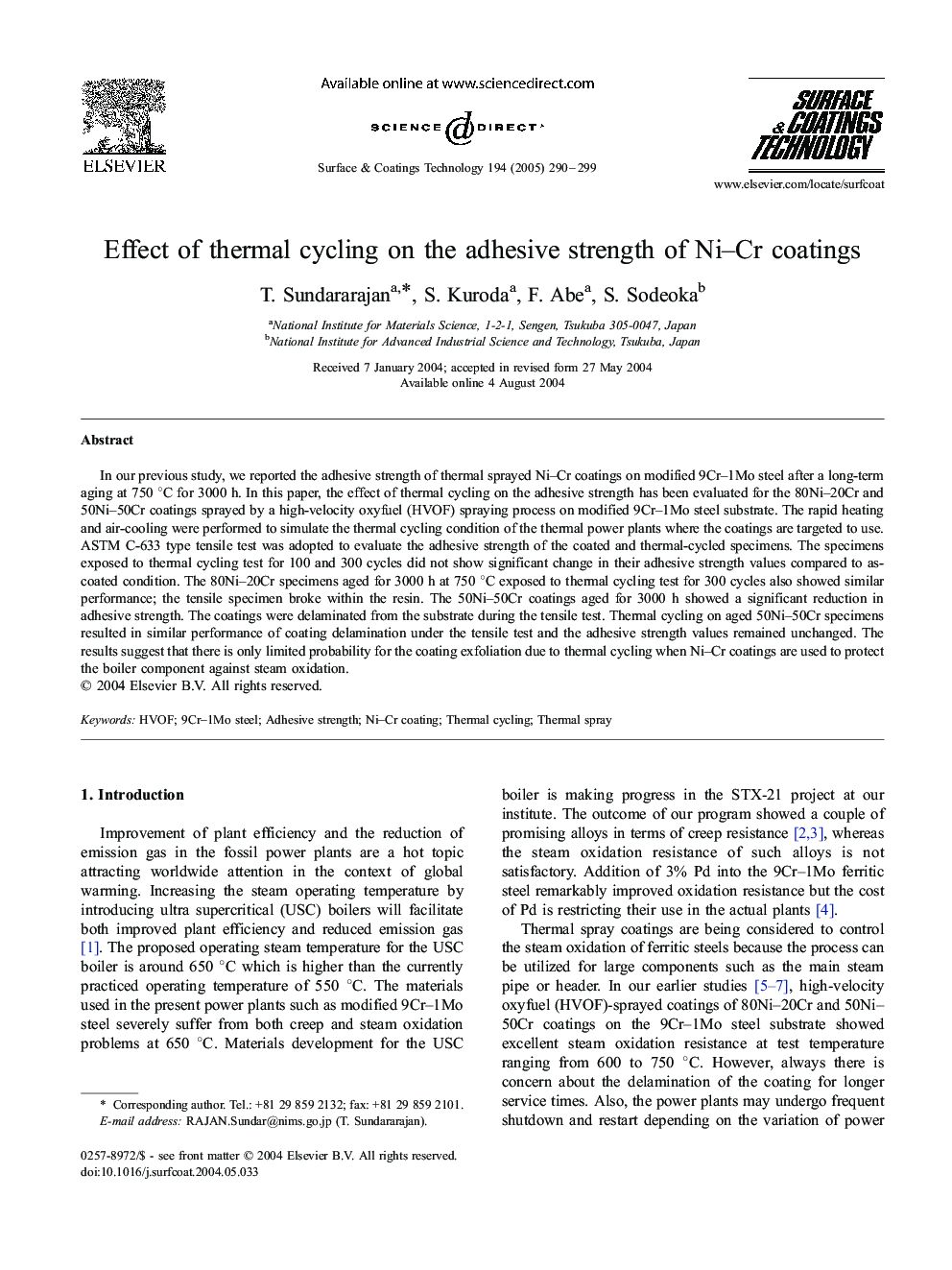| Article ID | Journal | Published Year | Pages | File Type |
|---|---|---|---|---|
| 9809783 | Surface and Coatings Technology | 2005 | 10 Pages |
Abstract
In our previous study, we reported the adhesive strength of thermal sprayed Ni-Cr coatings on modified 9Cr-1Mo steel after a long-term aging at 750 °C for 3000 h. In this paper, the effect of thermal cycling on the adhesive strength has been evaluated for the 80Ni-20Cr and 50Ni-50Cr coatings sprayed by a high-velocity oxyfuel (HVOF) spraying process on modified 9Cr-1Mo steel substrate. The rapid heating and air-cooling were performed to simulate the thermal cycling condition of the thermal power plants where the coatings are targeted to use. ASTM C-633 type tensile test was adopted to evaluate the adhesive strength of the coated and thermal-cycled specimens. The specimens exposed to thermal cycling test for 100 and 300 cycles did not show significant change in their adhesive strength values compared to as-coated condition. The 80Ni-20Cr specimens aged for 3000 h at 750 °C exposed to thermal cycling test for 300 cycles also showed similar performance; the tensile specimen broke within the resin. The 50Ni-50Cr coatings aged for 3000 h showed a significant reduction in adhesive strength. The coatings were delaminated from the substrate during the tensile test. Thermal cycling on aged 50Ni-50Cr specimens resulted in similar performance of coating delamination under the tensile test and the adhesive strength values remained unchanged. The results suggest that there is only limited probability for the coating exfoliation due to thermal cycling when Ni-Cr coatings are used to protect the boiler component against steam oxidation.
Related Topics
Physical Sciences and Engineering
Materials Science
Nanotechnology
Authors
T. Sundararajan, S. Kuroda, F. Abe, S. Sodeoka,
